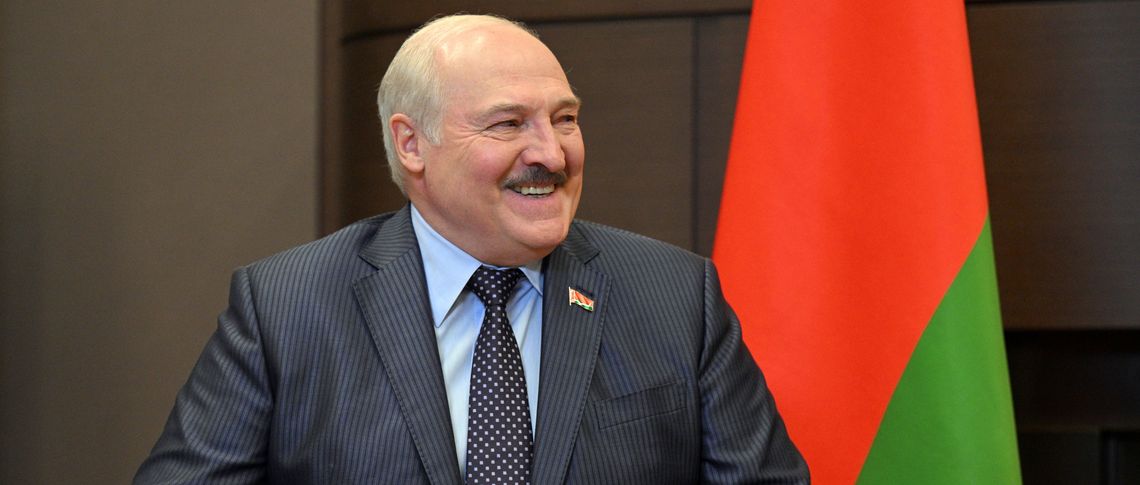The escalation of the war between Russia and Ukraine is a serious shock for the region, which could not but affect the socio-political situation in neighbouring Belarus. One important point to consider is Belarusians’ trust in the authorities and in state and non-state institutions, which has increased by 10 per cent since the start of the war. According to polls published in the Belarusian Change Tracker, in October 2021 the balance of supporters and opponents of the authorities was approximately 38/62. In May 2022, this indicator changed to 48/52. Among opponents of the authorities, there are considerably more men, highly educated, more likely to live in Minsk with higher incomes. Among supporters, on the contrary, there are more women. They are less educated, with a lower average income.
How is this possible? War is an extremely unpopular phenomenon among Belarusians. Thus, the research of the Belarusian Analyst Andrey Vardomatsky shows that 11 per cent of people support Belarus entering the war. Chatham House research records only 5 per cent of those who would like the Belarusian army to enter the war on the side of Russia. Simultaneously, Belarusian society strongly fears being drawn into the war. In such a situation, Alexander Lukashenko’s ‘dovish’ rhetoric about how the country resists being drawn into war finds its audience. The image of a potential ‘terrible’ military future outweighs the deterioration of the current material situation; against this background, the present does not look like the worst-case scenario.
In Poland alone 35 thousand humanitarian visas and 40 thousand visas for IT specialists were issued.
But there is no talk of a full repeat of the 2014-2015 effect, when Alexander Lukashenko could boast of a certain consensual assessment of his role as president of the country.
The second explanation has to do with emigration from Belarus due to repression, disagreement with the policies of the authorities, or fears of war. In Poland alone, 35 thousand humanitarian visas and 40 thousand visas for IT specialists were issued. People who leave are, in the overwhelming majority of cases, opponents of Lukashenko’s regime. Accordingly, the number of people inclined to trust the authorities is increasing.
Difficulties of data collection
The question of data validity on political topics in Belarus under Lukashenko is far from new. Independent research organisations have been regularly criticised for their unwillingness to believe that Lukashenko has substantial public support in Belarus. Most often, such disbelief is explained by the fear factor: the fear of respondents to answer ‘political’ questions. Explaining the popularity of the expression: ‘impossibility of sociology in the conditions of dictatorship’. We should admit that the fear factor does influence the results of public opinion polls in Belarus after the wave of repressions of 2020-2021. But it is still necessary to study the Belarusian public opinion. How can this be done?
There are three most widespread ways to study public opinion by means of polling: face-to-face interviews at the place of residence, telephone interviews, and online surveys.
The incessant waves of repression for any anti-regime statements and social media likes cannot but affect the respondents' willingness to answer honestly in a telephone survey, or to take the survey on such sensitive topics at all.
Face-to-face community interviews allow us to build a truly representative sample, but they are expensive and virtually impossible at present. Conducting such a survey requires a large amount of coordinated work by a network of interviewers and supervisors, it cannot be kept secret and cannot be conducted entirely from outside of Belarus. In addition, surveys on political topics are forbidden in Belarus without special accreditation. No private research company will take this risk, and no state-affiliated company will take on a project where the client is not the Belarusian state.
Telephone surveys may seem to be a solution to the problem — if the right methods are applied, they allow for building a representative sample. However, when it comes to telephone surveys in Belarus, there is every reason to believe that the notorious fear factor will indeed significantly distort answers to the questions about the internal political conflict in Belarus. In the country, every SIM-card is tied to the passport of a citizen. The incessant waves of repression for any anti-regime statements and social media likes cannot but affect the respondents’ willingness to answer honestly in a telephone survey, or to take the survey on such sensitive topics at all. Keeping all this in mind, it would still be possible to study the attitude of Belarusians to the war by means of a telephone poll.
A result which will subside over time
Online panels to a certain extent solve the issues with the fear factor and access to respondents, but they cannot ensure representativeness in the strict scientific sense. The audience of online panels is different from the general population of Belarusians: people who have a keen interest, who have time for panels and who are willing to answer the questionnaire, who have access to internet and the right skills to use technology register there. These people are more educated and socially active and live in cities. Accordingly, there are significantly more people among the online panel audience who tend not to support the regime.
The fear factor is much less pronounced in online panel studies than in telephone studies — after all, the Internet gives more confidence in anonymity than talking on a mobile phone in Belarus. At the same time, fear affects the sample — more ‘neutral’ respondents drop out. And yet, the online panel gives researchers more tools to deal with the fear factor — some techniques are extremely difficult to execute in a telephone conversation. In our study, a set of 19 statements was used to measure trust in the regime, followed by a clustering of responses into the aforementioned groups. The sheer number of these statements would have had an impact on the telephone interview — imagine how long it would take to read them out.
In contrast to 2015, there is a significant number of people united in distrust of the regime who are not ready to accept Lukashenko's rule in any form and for whom 'not being drawn into the war' does not outweigh all other accumulated issues with the authorities.
Returning to the issue of the departure factor of those inclined to distrust the regime from the country. The people who leave are more likely to participate in the online panel. Consequently, their departure may affect the results of the measurement more than in reality. At the same time, the departure of people alone cannot explain the 10 per cent trend in confidence in the regime.
The result is unlikely to persist in the long term: this case represents an emotional reaction that will subside over time. Only the most ‘plastic’ in terms of public opinion, the neutral part of society, has been subjected to this effect. In contrast to 2015, there is a significant number of people united in distrust of the regime who are not ready to accept Lukashenko’s rule in any form and for whom ‘not being drawn into the war' does not outweigh all other accumulated issues with the authorities. Besides, the Lukashenko regime can instantly lose even this level of support if it gets involved in a war.






